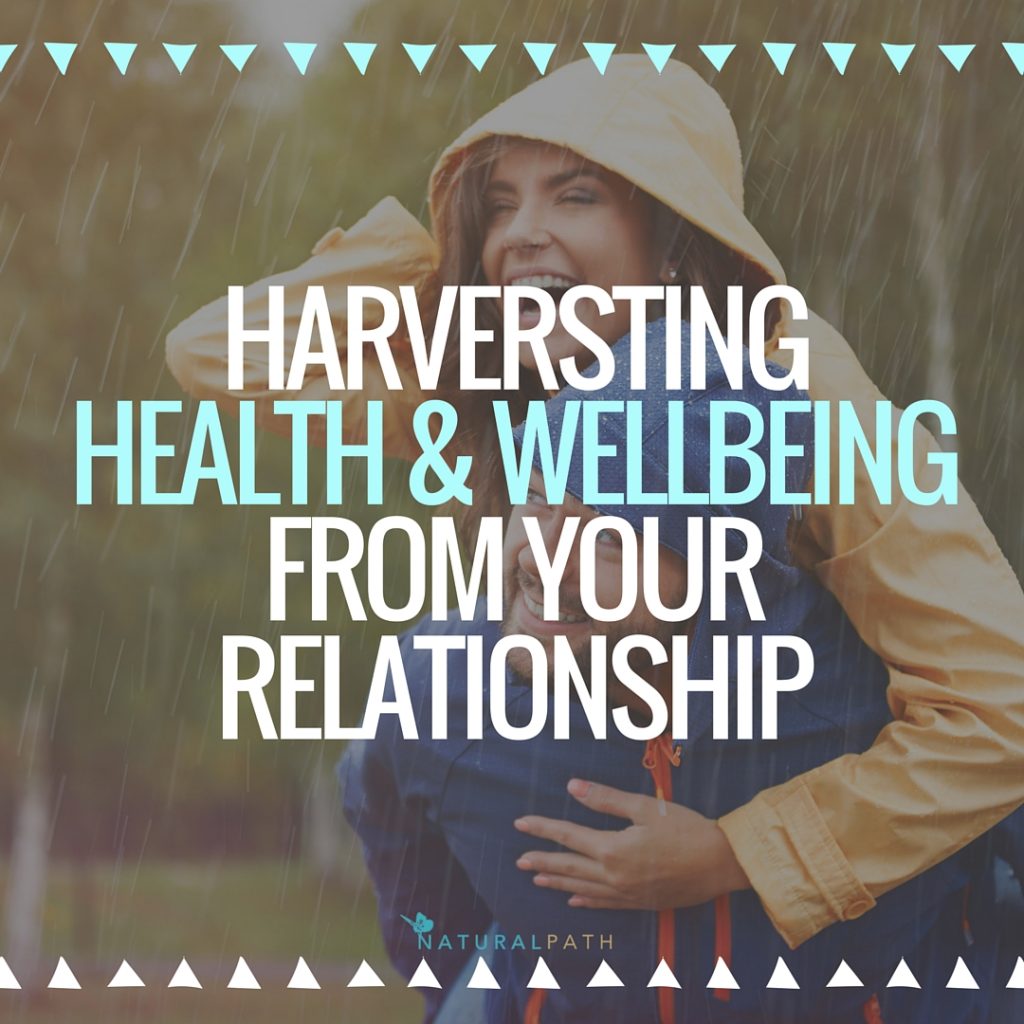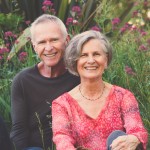Dr. Katie Hendricks, PhD
Dr. Gay Hendricks, PhD
When you declared “in sickness or in health” when you committed in your own style or ceremony, you probably weren’t thinking very much about actuarial tables. You may have discounted how much your relationship dynamics actually can increase your health or make you sick. In fact, your relationship health and wellbeing are totally intertwined.
Learning Relationships
Many years ago we noticed that relationships tend to follow three pathways with very different wellbeing outcomes. Most people take the path called learning relationships. In a learning relationship, you attract a partner with whom you can expand or explore some aspects of yourself that couldn’t be accessed in any other way. A close relationship can shine the light into corners that we weren’t even aware were full of cobwebs, or open doors that we didn’t know existed. If you welcome the opportunity to learn and grow, that commitment can support a host of benefits that deep partnering supports, such as: living longer, regular experience of bonding and feel-good hormones, less depression, lower blood pressure, lower risk of heart attack and healthier lifestyle choices in general. However, many learning relationships are marked by resistance, the experience of thinking, “Wait a minute! I’m having the wrong experience here!” The pattern often unfolds like the following dialogue:
“I hate to say it, but things have gotten pretty boring around here.”
“Maybe boring for you, since you never do anything around the house. More like never-ceasing for me, in case you haven’t noticed.”
“Maybe if you looked up from all your busy work from time to time, you’d see some opportunities for fun.”
“Well, maybe if you helped out more, I’d have TIME for fun.”
People don’t understand the health benefits of caring and close relationships because they fall into patterns of finger-pointing and mistaking responsibility for burden. The number one choice that learning partners can make is to whole-heartedly see each interaction as an opportunity to learn. This choice shifts you from defending old patterns into enjoying ongoing discovery. Humans are constructed to either protect or grow, but we can’t do both. Recommitting to learning from your partner can evolve into deep caring and co-creativity, ultimately into another kind of relationship altogether, which we’ll address shortly.
Toxic Relationships
But first, on the other end of the continuum lurk the toxic relationships, mismatched alliances like oil and water, where genuine caring, safety and partnering never really gel. Toxic relationships are marked by more stress and illness for one or both partners and often in their families. These relationships are more at risk for: depression, weakened immune system, drinking patterns that parallel a partner’s habits, higher blood pressure. The number-one choice that partners stuck in this muck can make is to end blame and criticism in their relationships. Period. Our newest book Conscious Loving Ever After discusses how to create a blame-free zone in your relationship. Since blame and criticism are the number-one relationship killers, committing to ending that toxicity can allow your bond to deepen, can provide space for you to turn toward each other and see each other as allies rather than obstacles or enemies.
Celebratory Relationships
Here’s the very good news. A small (but growing) number of relationships are what we call celebratory; partnerships in which the biggest task is to appreciate and support each other’s deepest desires and to expand every day in giving and receiving more love. In these relationships wellbeing becomes the baseline from which more and more contribution can be made to family and community. Free time for creative and co-creative exploration opens, and joy replaces stress. Not only do these partners experience heightened wellbeing—their presence inspires and ignites more caring and creativity in others.
All of us have learned problematic relationship habits, and these habits don’t just fuel complaints, they feed illness. Our experience over decades with students, clients and friends demonstrates that you can change your life choice by choice, and those choices can build a home base of health and genuine nurturing. What will you choose?
 Relationship experts Drs. Gay and Kathlyn Hendricks, Ph.D., have been married 34 years, worked together for 30 years, and authored over 30 books, including their bestselling, Conscious Loving. They have made it their life’s work to help people create healthy, thriving love relationships, and in their groundbreaking new book, Conscious Loving Ever After, they set their sights on supporting those in midlife and beyond in committing and recommitting to relationship wellness. Learn more at www.HeartsInTrueHarmony.com.
Relationship experts Drs. Gay and Kathlyn Hendricks, Ph.D., have been married 34 years, worked together for 30 years, and authored over 30 books, including their bestselling, Conscious Loving. They have made it their life’s work to help people create healthy, thriving love relationships, and in their groundbreaking new book, Conscious Loving Ever After, they set their sights on supporting those in midlife and beyond in committing and recommitting to relationship wellness. Learn more at www.HeartsInTrueHarmony.com.
